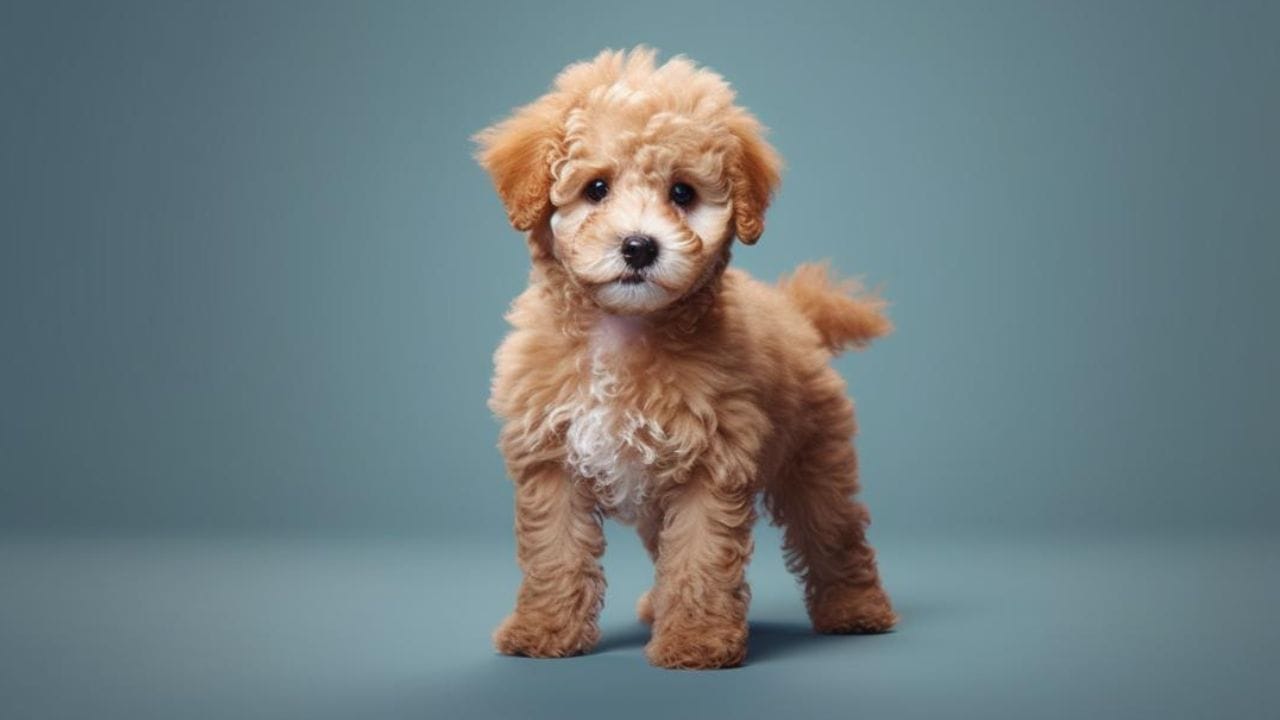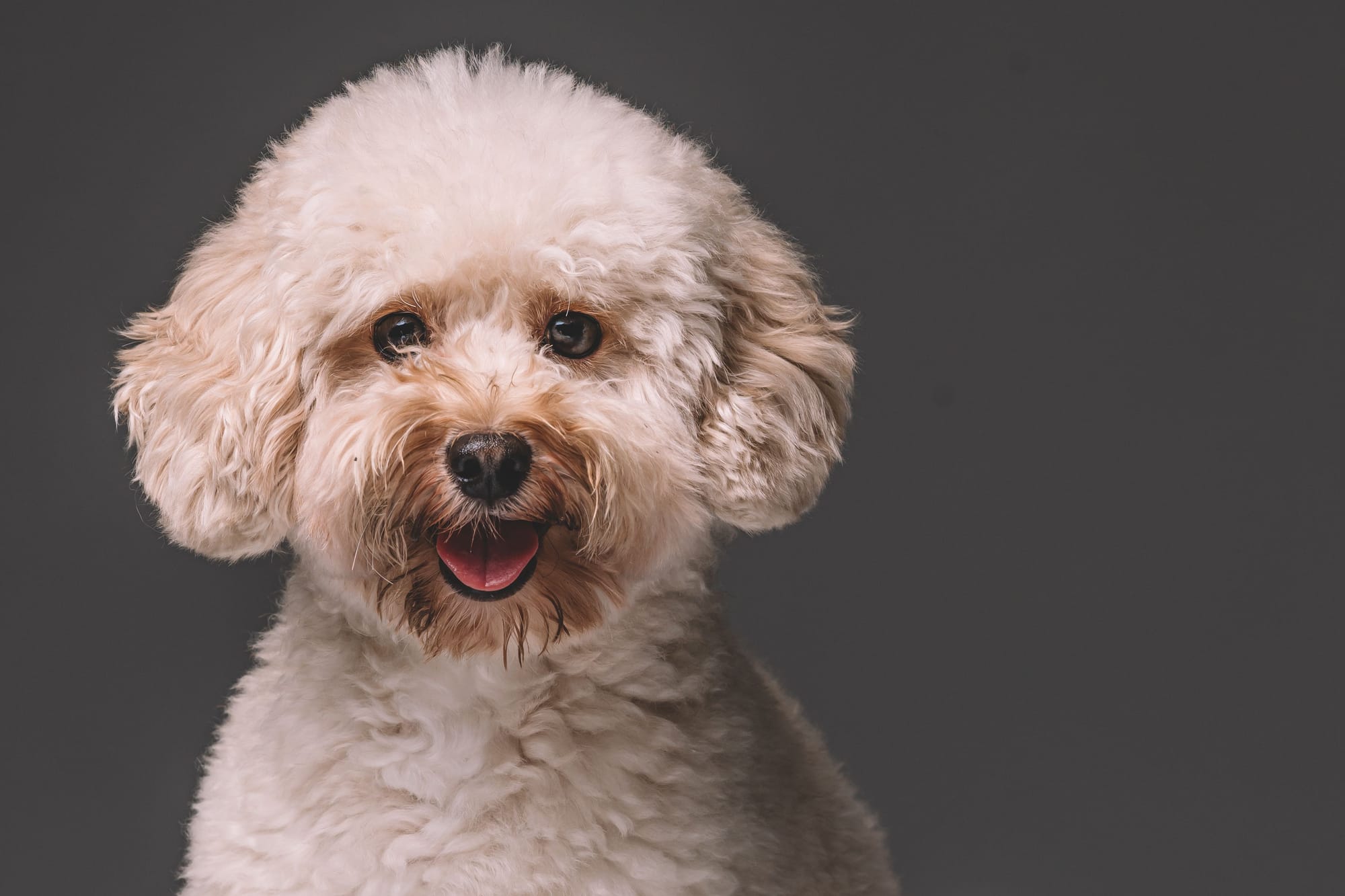Are Toy Poodles Easy to Train? Unveiling the Truth About Their Trainability
Toy Poodles are among the most popular dog breeds for pet owners who prefer a smaller companion with high intelligence and an energetic demeanor. Recognized for their distinctive curly coats and often seen in the show ring, Toy Poodles carry the same intelligent and trainable traits as their Standard and Miniature counterparts. Their size, often not exceeding 10 inches in height at the shoulder, makes them ideal for those with limited space, but it doesn't mitigate their need for mental stimulation and training.

Training a Toy Poodle can be a rewarding experience, as they are quick learners who are eager to please their owners. These dogs often excel in obedience training, and with their eagerness to learn, they can pick up on commands and tricks with consistency and patience from the trainer. As with any breed, early socialization and positive reinforcement are critical, but thanks to their alert and responsive nature, Toy Poodles tend to respond well to these training methods.
Despite their size, Toy Poodles require regular exercise and thrive on engaging activities. They are highly adaptable and can live happily in various settings as long as their mental and physical needs are met. Although their intelligence facilitates the training process, they can develop undesirable habits if not given proper guidance and stimulation. Therefore, owners should invest time in training to ensure their Toy Poodle remains well-behaved and mentally content.

Understanding Toy Poodle Characteristics
The Toy Poodle is a specific breed known for its intelligence, sensitivity, and distinct grooming needs that are characteristic of the Poodle breeds.
Intelligence and Temperament
Toy Poodles are renowned for their high intelligence, ranking them as one of the most intelligent breeds. Training them is usually a straightforward endeavor due to their quick learning capabilities. They possess a keen ability to comprehend and execute a wide array of commands, which makes them excellent at obedience training. Their temperament is generally joyful and dynamic, yet they are known for being very sensitive. These attributes make them both eager to please and responsive to their owner's mood and tone.
- Sensitivity: The breed’s sensitivity requires a gentle training approach.
- Loyalty: Known for their loyalty, Toy Poodles often form strong bonds with their family.
- Loving Nature: They typically display a loving disposition, eager for affection and interaction.
Physical Attributes and Grooming
Toy Poodles sport a curly, dense coat, which sets them apart from many other breeds. Their small stature is a defining trait, as they are the smallest variant when compared to Standard and Miniature Poodles. Regular grooming is essential for maintaining their coat’s health and appearance.
- Clipping: Routine clipping is necessary to prevent mats and tangles.
- Grooming Schedule: Professional grooming every 3-6 weeks is recommended.
The specific grooming needs of Toy Poodles distinguish them not only from other breeds but also within the Poodle category, as their smaller size may demand more frequent attention to
Basics of Toy Poodle Training
Toy Poodles are known for their intelligence, which can make training a relatively smooth process. Successful training hinges on understanding their specific needs and behaviors.
Training Essentials
Setting a foundation for Toy Poodle training involves establishing a consistent routine and using repetition to reinforce commands. Trainers should focus on the following essentials:
- Consistency: Maintaining a regular schedule for training sessions.
- Commands: Start with basic commands like sit, stay, come, and down.
- Positive Reinforcement: Use treats and praise to reward desired behavior, which promotes a willingness to learn.
- Patience: Understand that training takes time, and each dog learns at its own pace.
Practice is crucial; short, frequent training sessions are more effective than long, infrequent ones. Incorporating training into daily activities helps the poodle understand the relevance of commands and actions.
Addressing Behavioral Issues
Behavioral issues in Toy Poodles can be addressed effectively with proper training techniques:
- Anxiety: Provide a secure environment and avoid situations that provoke fear until the poodle is gradually desensitized.
- Fear: Build confidence through positive experiences and gentle encouragement.
- Bad Habits: Interrupt these behaviors with a command or distraction, then redirect to the correct behavior.
- Frustration: Keep sessions upbeat and end on a positive note to prevent frustration for both trainer and poodle.
Addressing behavioral issues often requires trainers to identify the cause of the problem and approach it with empathy. Additional professional help may be necessary for persistent issues.
Effective Training Techniques
Training a Toy Poodle involves consistency and patience. Selecting the correct techniques will streamline their learning and enhance their ability to follow commands.
Positive Reinforcement
Positive reinforcement is central to effective dog training. For Toy Poodles, it typically involves rewarding the correct behavior with treats or praise to reinforce that behavior. Initially, a trainer should give a tasty treat promptly after a poodle follows a command to cement the desirable action. As proficiency increases, treats can be given intermittently. This method hinges on repetition and incremental steps to gradually increase obedience.

- Key steps for Positive Reinforcement:
- Give a clear command.
- Await the dog's correct response.
- Immediately reward with a treat or praise.
- Benefits:
- Enhances learning and retention.
- Builds a strong bond between the dog and the trainer.
Clicker Training Method
Clicker training is a form of positive reinforcement that integrates a sound a click to mark the exact moment a dog performs the desired behavior. The sound of the clicker becomes associated with something positive, such as a reward or treat, making it a powerful tool for treat training.
- Process:
- Issue a command.
- When the Toy Poodle obeys, use the clicker.
- Immediately follow with a reward, solidifying the connection.
- Advantages:
- Offers a clear, consistent signal for desired behavior.
- Facilitates fast and precise obedience training.
By employing these techniques with consistency and care, training a Toy Poodle can be a successful and enjoyable endeavor.
Specialized Training Sessions
Toy Poodles thrive with structured training that addresses their sociability and physical coordination in compressed, yet rewarding sessions.
Socialization and Play
Routine is integral for socialization; it helps reduce anxiety in lively environments. Toy Poodles need consistent socialization and play time that incorporates a variety of controlled settings. Here's an effective weekly routine:
- Monday/Wednesday/Friday: Park visits for interaction with different dogs and people.
- Tuesday/Thursday: At-home play sessions with challenging toys to stimulate their mind.
Distractions should gradually be introduced to ensure Toy Poodles can remain focused and social in various situations.
Obedience and Agility Training
Obedience training harnesses a Toy Poodlea's intelligence, while agility training capitalizes on their physical prowess. Regular practice is critical starting with basic commands before progressing to complex routines.
Agility Training Progression:
- Week 1-2: Familiarization with agility equipment (e.g., tunnels, jumps).
- Week 3-4: Basic agility maneuvers (e.g., navigating simple courses).
- Week 5+: Full agility courses, timed runs, and participation in friendly competitions.
To foster obedience, trainers should start with fundamental commands like sit, stay, and come, then gradually introduce more challenging ones such as heel or roll over. Training sessions should be concise to maintain concentration and avoid fatigue.
Preventing and Managing Common Setbacks
Training a Toy Poodle can come with challenges, such as separation anxiety and stubborn behavior. Owners should approach these issues with structured strategies to prevent and manage them effectively.
Coping with Separation Anxiety
Separation anxiety in Toy Poodles can lead to destructive behavior and accidents when left alone. To prevent this:
- Start with short departures and gradually increase the time away.
- Create a safe space for the dog with familiar toys to reduce fear.
- Consistency in routine helps the dog predict the owner's return.
Dealing with Stubbornness
A Toy Poodle's stubborn streak can impede training progress. To combat stubbornness:
- Use positive reinforcement such as treats and praise to encourage desired behavior.
- Maintain persistence and patience; do not give up if progress is slow.
- Minimize distractions during training sessions to keep the dog focused.
Employing these tactics will help address common training setbacks, making the training process smoother for both the dog and owner.
Advanced Training Goals
Toy Poodles excel in learning complex tasks due to their high intelligence and eagerness for mental stimulation. Advanced training moves beyond basic obedience to enhance their abilities and provide necessary challenges.
Leash and Crate Training
Leash Training: Toy Poodles thrive on walks and require proper leash training to ensure their safety and the handler's ease of control. The goal is to achieve a loose-leash walk, where the dog moves in harmony with the handler without pulling or being distracted.
- Steps for Leash Training Success:
- Start in a distraction-free environment.
- Gradually introduce more distractions as they become proficient.
- Use treats and praise to encourage focus and proper position.
Crate Training: Crate training is essential for providing a secure environment for a Toy Poodle and easing anxiety during travel or at times when they cannot be supervised. A properly crate-trained Toy Poodle should be able to settle peacefully in their crate and enter it on command.
- Crate Training Objectives:
- Create a positive association with the crate using toys and treats.
- Build duration in the crate gradually.
- Use it as a tool for safe containment, not as punishment.
Complex Commands Mastery
Toy Poodles are capable of mastering a series of advanced commands that challenge their intelligence and provide them with mental stimulation.
- Commands to Master:
- Sit-Stay: They should maintain the position despite distractions.
- Down-Stay: Exhibiting control by lying down until released.
- Heel: Walking neatly by the handler's side on and off leash.
- Retrieve Specific Items: Ability to differentiate between objects and bring the correct one.
Each command should be broken down into smaller steps for the Toy Poodle to understand and master. Consistent practice and positive reinforcement are essential for confirming these behaviors as second nature. This advanced training aids in mental development and reinforces the bond between the Toy Poodle and their handler.
Ensuring Lifelong Success
Training a Toy Poodle requires a steadfast approach to ensure lifelong success. One must balance routine with adaptability to each dog's personality. Moreover, mental stimulation must be as rigorous as physical exercise to keep the dog engaged and learning.
Continual Learning and Practice
Commitment: A pet owner's commitment is paramount for a Toy Poodle's continuous education. One must allocate time daily for training sessions that are consistent in their approach but flexible enough to adapt to the dog's individual learning speed and style.
- Routine and Consistency: Establishing a routine creates a sense of security for the Toy Poodle, facilitating better learning conditions. Daily practice should include:
- Repetition of commands
- New challenges to prevent boredom
- Positive reinforcement to encourage behavior
Consistency in commands, rewards, and even in the training schedule itself solidifies the learned behaviors.
- Personality Assessment: It is crucial to continuously assess the Toy Poodle's personality and tailor the training methods accordingly. What works for one dog may not work for another. Regular testing and observation can help identify which strategies are most effective.
- Mental Stimulation: To avoid plateauing in training, one should introduce new tasks and puzzles that encourage problem-solving and obedience. This not only stimulates the dog's mind but also strengthens the bond between the dog and the owner.
Use the table below as a guide for integrating these elements into a Toy Poodle's training regimen:
| Daily Element | Purpose | Techniques |
|---|---|---|
| Set Training Time | Establishes routine | Fixed schedule, same location |
| Command Repetition | Reinforces learning | Consistent language, gradual difficulty increase |
| Personality Testing | Tailors approach | Observation, adaptation to behaviors |
| Mental Challenges | Promotes cognitive development | Interactive toys, agility training |
| Consistent Feedback | Encourages desired behavior | Immediate reward or correction following an action |

Selecting Professional Help
When training a Toy Poodle, enlisting the help of professionals can be invaluable. Dog training professionals typically have extensive experience and can offer tailored advice for the unique needs of this breed.
Professional Trainers:
- Research: Seek out trainers who have positive reviews and a history of working with Toy Poodles or similar breeds.
- Credentials: Verify their credentials and ask about their training methods to ensure they align with your expectations and philosophy.
Professional Groomers:
- Toy Poodles require regular grooming. A professional groomer can assist not only with maintaining their coat but also with training your poodle to be comfortable during grooming sessions.
Breeders:
- Reputable breeders are a wealth of knowledge about the breed's characteristics and can often provide tips for early-stage training.
- They can sometimes offer specific advice on addressing behavioral issues that are common among Toy Poodles.
Animal Shelters:
- Staff at animal shelters often have experience handling a variety of dogs and may offer training classes or resources for new pet owners.
| Source of Assistance | Type of Help |
|---|---|
| Professional Trainer | Tailored training methods, behavioral advice |
| Professional Groomer | Grooming acclimation, coat maintenance |
| Breeder | Breed-specific training tips |
| Animal Shelter | General training classes, resources |
Engaging professionals for help does not imply a deficit in the owner's ability but recognizes the value of specialized expertise, ensuring that the Toy Poodle receives comprehensive guidance that is well-rounded and effective.
Frequently Asked Questions
Toy Poodles are generally responsive to training due to their intelligent and eager-to-please nature.
What is the typical temperament of a Toy Poodle and how does it affect training?
Toy Poodles tend to be alert, intelligent, and lively, which makes them highly trainable. Their temperament often results in a positive learning experience, as they enjoy engaging with their owners and learning new commands.
How does the intelligence of Toy Poodles impact their training process?
Their high intelligence means Toy Poodles can quickly learn and execute complex commands, which can make training both effective and efficient. They typically excel in obedience training and can master tricks and tasks with proper guidance.
Can Toy Poodles be considered suitable pets for first-time dog owners?
Toy Poodles can be a good choice for first-time dog owners due to their trainable and friendly disposition. However, they do require consistent, patient training and mental stimulation to thrive.
What are some common training challenges faced by Toy Poodle owners?
Some Toy Poodles may become bored with repetitive training or develop stubbornness. Owners may need to be creative and consistent to maintain engagement during training sessions.
How does the size of a Toy Poodle influence its trainability?
The small size of Toy Poodles allows for easier handling, which can facilitate the training process, especially during activities like potty training or leash training.
What are effective training strategies for Toy Poodle puppies?
Early socialization and positive reinforcement are key strategies in training Toy Poodle puppies. They respond well to treats and praise, which can be used to reinforce good behavior and encourage learning.




